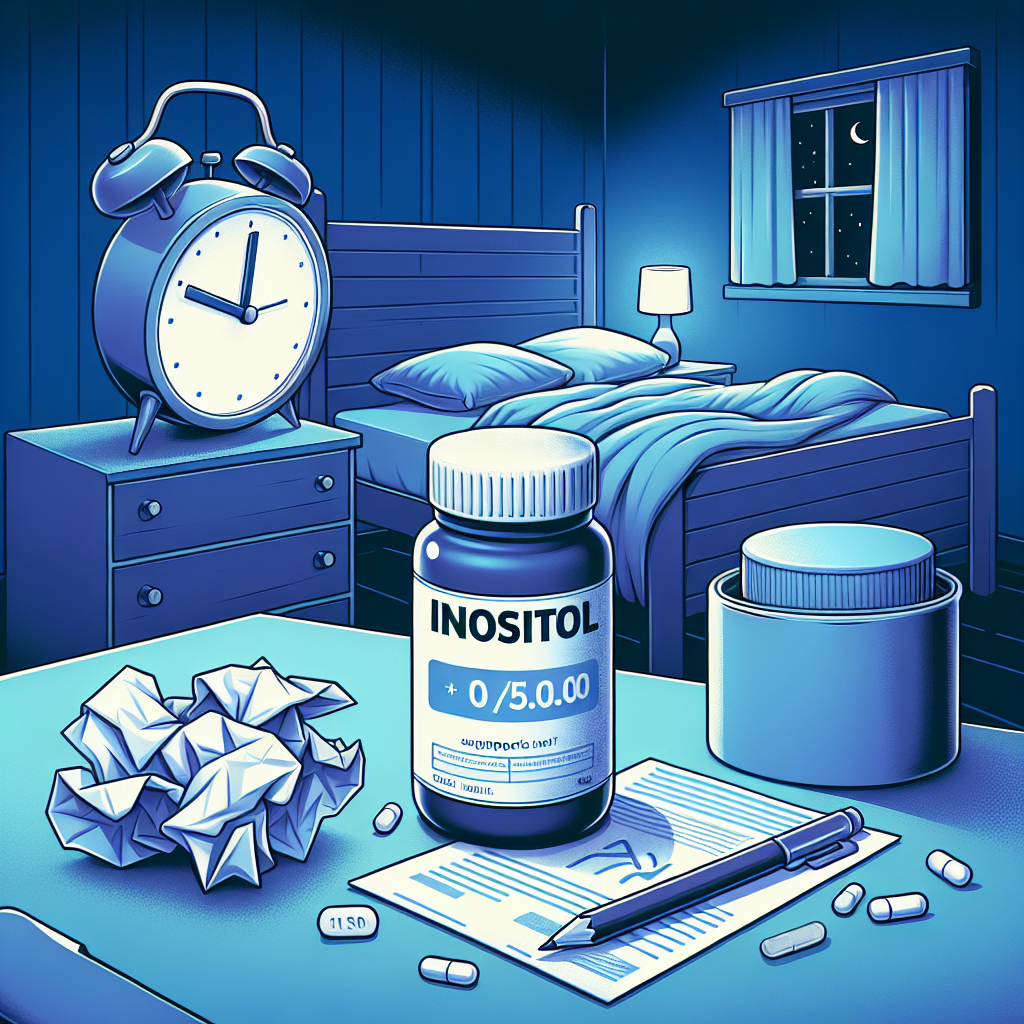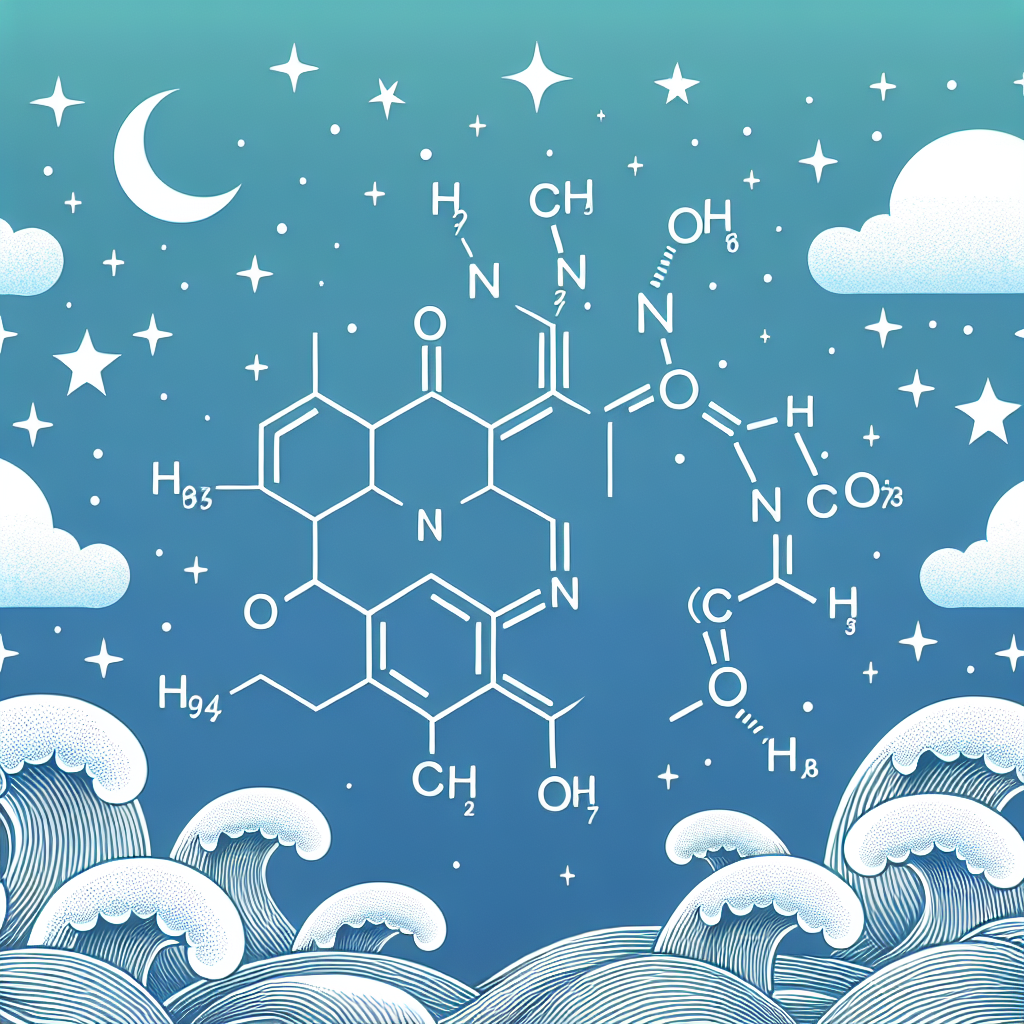Inositol: A Lesser-Known Supplement for Sleep and Anxiety

Exploring Inositol: The Natural Solution for Enhancing Sleep Quality
Inositol, a naturally occurring compound that plays a crucial role in the body’s cellular processes, has recently garnered attention for its potential benefits in enhancing sleep quality and alleviating anxiety. This lesser-known supplement, often overshadowed by more popular vitamins and minerals, is emerging as a promising natural solution for those struggling with sleep disturbances and anxiety disorders. By delving into the science behind inositol, we can uncover how this compound may offer a beacon of hope for individuals seeking to improve their mental health and sleep patterns.
The human body produces inositol in small amounts, but it can also be found in various foods such as fruits, beans, grains, and nuts. Despite its widespread availability, the therapeutic doses required to impact sleep and anxiety significantly exceed what one can typically consume through diet alone. This is where inositol supplements come into play, offering a concentrated dose that can help bridge this gap.
Research into inositol’s effects on the brain has revealed its role in neurotransmitter signaling, particularly in relation to serotonin and dopamine, two chemicals intimately involved with mood regulation, anxiety, and sleep. By modulating the action of these neurotransmitters, inositol supplementation can help enhance mood, reduce anxiety levels, and promote better sleep. This is particularly relevant in our fast-paced world, where stress and sleep issues are increasingly common, affecting a wide swath of the population.
One of the most compelling aspects of inositol is its potential to serve as a natural and gentle alternative to pharmaceutical interventions for anxiety and sleep disorders. Many individuals are seeking ways to manage these conditions without the side effects often associated with prescription medications. Inositol’s safety profile, coupled with its efficacy in preliminary studies, makes it an attractive option for those wary of traditional medications. However, it’s important to note that while inositol shows promise, it should not replace professional medical advice or treatment. Consulting with a healthcare provider before starting any new supplement regimen is always recommended.
Moreover, inositol’s benefits extend beyond just improving sleep and reducing anxiety. Preliminary research suggests it may also have a positive impact on other aspects of mental health, including depression and obsessive-compulsive disorder (OCD). These potential benefits underscore the versatility of inositol as a supplement and highlight its importance in the broader context of mental health management.
In conclusion, inositol represents a natural solution for individuals looking to enhance their sleep quality and manage anxiety. Its role in neurotransmitter signaling offers a scientific basis for its use in improving mental health and well-being. While more research is needed to fully understand its efficacy and optimal dosing, the current evidence suggests that inositol could be a valuable addition to the toolkit for addressing sleep and anxiety issues. As we continue to explore the benefits of this lesser-known supplement, it’s clear that inositol holds promise for those seeking natural ways to improve their health and quality of life.
The Role of Inositol in Managing Anxiety Without Prescription Medications

Inositol, a naturally occurring carbohydrate found in various forms within the body, has garnered attention for its potential benefits in managing anxiety and improving sleep quality without the need for prescription medications. This lesser-known supplement, often overshadowed by more popular alternatives, plays a crucial role in neurotransmitter signaling, particularly in relation to serotonin and dopamine, which are key players in mood regulation and sleep patterns. As we delve deeper into the role of inositol in managing anxiety, it becomes clear that this compound could offer a promising alternative for those seeking natural remedies.
Anxiety disorders, characterized by persistent and excessive worry, affect a significant portion of the population. Traditional treatment often involves prescription medications, which can come with a range of side effects and the risk of dependency. In the quest for safer alternatives, inositol emerges as a compelling option, thanks to its ability to modulate neurotransmitter activity without the harsh side effects associated with pharmaceuticals. Its mechanism of action, though not fully understood, is believed to involve the secondary messenger system, crucial for the transmission of brain signals that influence mood and anxiety levels.
Clinical studies have begun to shed light on the efficacy of inositol in treating anxiety disorders. For instance, research has demonstrated that inositol can be as effective as selective serotonin reuptake inhibitors (SSRIs), a common class of anxiety medications, in managing the symptoms of disorders such as panic disorder and obsessive-compulsive disorder (OCD). These findings are particularly encouraging for those hesitant to start prescription medications due to concerns about side effects or dependency.
Beyond its anxiety-reducing properties, inositol has also been shown to have a positive impact on sleep quality. Poor sleep and anxiety often go hand in hand, creating a vicious cycle that can be hard to break. Inositol’s ability to improve neurotransmitter signaling can help regulate the sleep-wake cycle, leading to better sleep quality and duration. This, in turn, can have a knock-on effect on anxiety levels, as well-rested individuals typically report lower levels of stress and anxiety.
The recommended dosage of inositol varies, with some studies suggesting benefits at doses ranging from 2 to 18 grams per day. However, it’s important to approach supplementation with caution, as the optimal dosage can vary based on individual factors such as age, weight, and the severity of symptoms. Consulting with a healthcare provider before starting inositol or any new supplement is always advisable to ensure safety and efficacy.
In conclusion, inositol presents a promising natural alternative for managing anxiety and improving sleep, offering hope to those seeking non-pharmaceutical options. Its role in neurotransmitter signaling not only provides a theoretical basis for its use but is also supported by clinical research demonstrating its potential benefits. As awareness of inositol grows, it may well become a staple in the natural management of anxiety and sleep disorders, providing a safer and more holistic approach to mental health and well-being.
Inositol: Unveiling Its Potential as a Safe and Effective Supplement for Sleep and Anxiety Disorders
Inositol, a naturally occurring carbohydrate found in various forms within the body, has recently garnered attention for its potential benefits in managing sleep and anxiety disorders. Despite its lesser-known status among supplements, inositol is emerging as a promising aid for those seeking safe and effective alternatives to traditional treatments. This article delves into the science behind inositol, exploring its mechanisms, benefits, and the growing body of research supporting its use in enhancing sleep quality and reducing anxiety symptoms.
Inositol plays a critical role in the body’s cellular processes, particularly in the signaling pathways of the brain. It is involved in the action of several neurotransmitters, including serotonin, which is closely linked to mood regulation, anxiety, and sleep. The connection between inositol and neurotransmitter function is a key area of interest for researchers, as imbalances in these chemicals are often found in individuals with sleep and anxiety disorders. By influencing neurotransmitter activity, inositol may help to restore balance and alleviate symptoms associated with these conditions.
The potential benefits of inositol for sleep and anxiety are supported by a growing body of scientific evidence. Several studies have shown that supplementation with inositol can lead to significant improvements in sleep quality, including reduced time to fall asleep and increased total sleep time. These effects are particularly beneficial for individuals with insomnia or other sleep disturbances, offering a natural and non-habit-forming solution. Furthermore, inositol has been found to reduce symptoms of anxiety, including panic attacks, in both clinical and non-clinical populations. Its anxiolytic properties make it an attractive option for those seeking alternatives to pharmaceutical interventions, which can often come with a host of side effects.
Despite its promising potential, inositol is not without its limitations. The optimal dosage and long-term effects of inositol supplementation are still under investigation, and responses can vary from person to person. However, it is generally considered safe, with few reported side effects, making it a viable option for many individuals. As with any supplement, it is important to consult with a healthcare provider before starting inositol, especially for those with pre-existing health conditions or who are taking other medications.
The interest in inositol as a supplement for sleep and anxiety disorders is part of a larger trend towards natural and holistic approaches to health and wellness. As individuals seek out alternatives to traditional pharmaceuticals, supplements like inositol offer a promising avenue for research and application. However, it is important to approach these options with caution and to rely on scientific evidence to guide decisions about health and treatment.
In conclusion, inositol is unveiling its potential as a safe and effective supplement for managing sleep and anxiety disorders. Its role in neurotransmitter signaling offers a novel approach to addressing the underlying imbalances associated with these conditions. While further research is needed to fully understand its mechanisms and optimize its use, inositol represents a valuable addition to the toolkit for improving mental health and well-being. As awareness of its benefits grows, inositol may soon move from a lesser-known supplement to a key player in the field of natural health solutions.